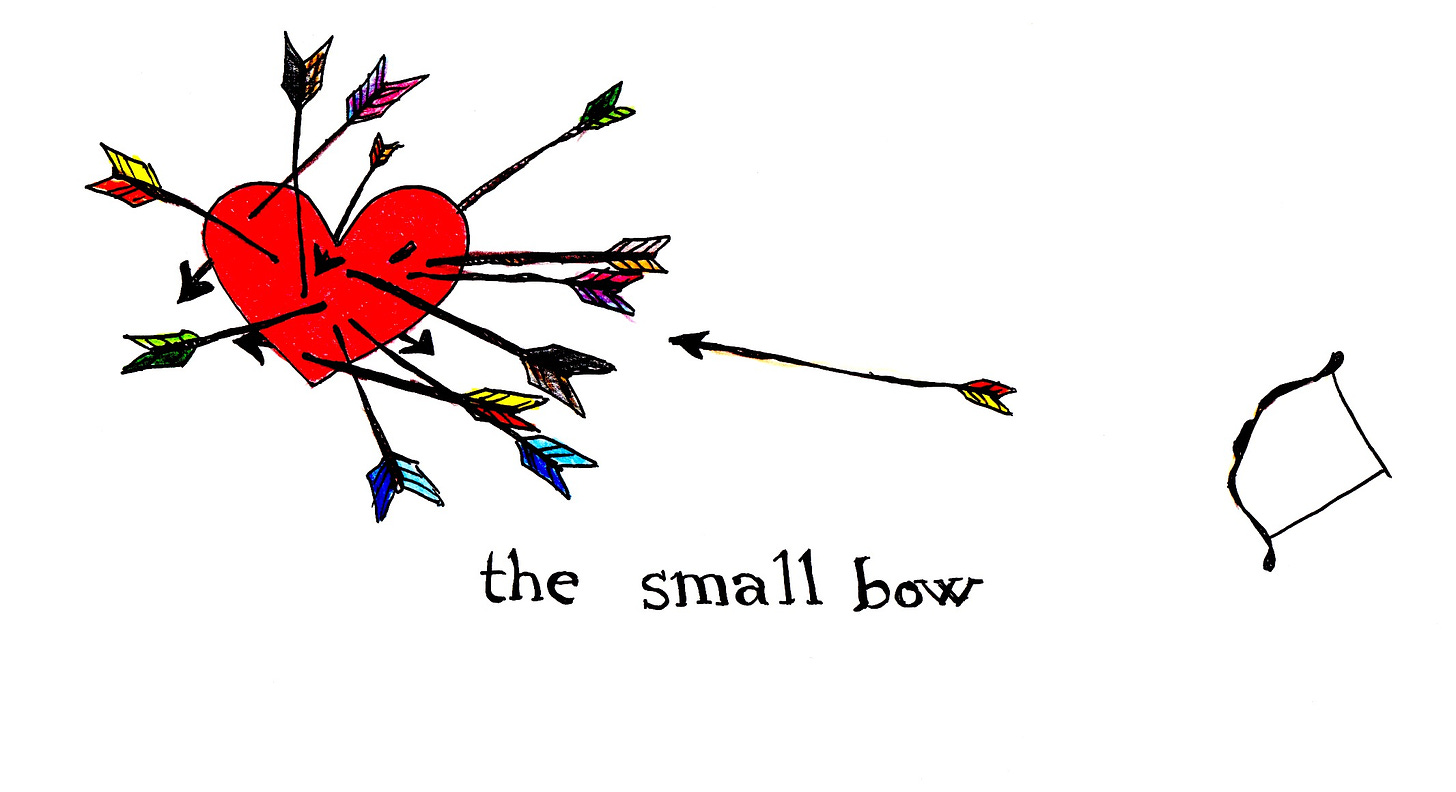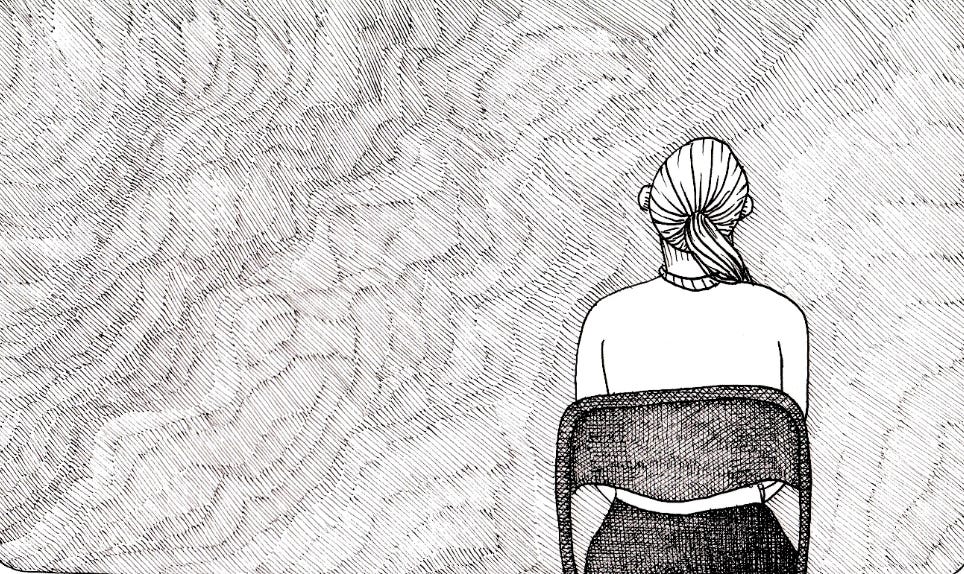Meditation Is Supposed to Be Unbearable
How to meditate through the coughing. Thoughts on yelling. A poem by Nick Flynn. James Baraz. Essay by Amie Barrodale.
I returned to an in-person meeting at the vampire church this week. I raised my hand, words came out, and I felt better. Most of what I shared was something I write about often—yelling at my kids. Sometimes, on my very bad mornings, they don’t even have to do anything worth yelling about. Still, I’ll smell mischief and yell anyway. If I hear the fridge open, I’ll assume the worst and scream, “HEY! CLOSE IT!” never turning my head away from the laptop. Once, I did this only to look up to find my little sniffling daughter explaining that she just wanted a cup of juice. I think this is called anticipatory yelling, which is the cruelest kind.
After the meeting, a couple of the other yelling dads came over to let me know I wasn’t alone, wasn’t the most vile son of a bitch to walk the earth. They were yelled at as kids, so now they yell. They know better and don’t want to be yellers, but they still yell. We are all here because we were yelled at, mostly by our fathers.
That’s where meditation has usually helped–the more I do it, the more I slow down, and the less I yell. “HEY! CLOSE IT!” becomes “Hey, Sweets, can I help you find something?” I meditate every day, but I can always do it longer every day. There’s never a moment where I think, “Why did I waste an hour meditating today when I could have been watching videos on my phone of people slipping on icy walkways and reading Wikipedia entries about the last 45 Best Adapted Screenplay Oscar winners?”
Today, I pulled out a short essay written by Amie Barrodale, a brilliant writer and a practicing Buddhist, and there was this one part that always stuck with me, especially when I began meditating:
“If you feel the urge to cough, you don’t cough…If you have an itch, don’t scratch it.”
Just sit.
Which is torture! But then again–it’s not. The point is to suffer until it is no longer suffering, and you can stay calm no matter what—but no coughing, no itching, no yelling.
This is also an excellent time to promote our two new TSB meetings, and one happens to be a meditation meeting.
Wednesday: 4 p.m. PT/7 p.m. ET (Meditation meeting: 10-minute group meditation followed by 50 minutes of sharing time.)
Thursday: 10 a.m. PT/1 p.m. ET (Women and non-binary meeting.)
Meeting ID: 874 2568 6609
PASSWORD TO ZOOM: nickfoles
Need more info?: ajd@thesmallbow.com
Alright, let’s get to Amie’s essay. Race you to the bottom.
MEDITATION IS SUPPOSED TO BE UNBEARABLE
by Amie Barrodale
**************************************************************
My husband’s work colleague came over for dinner, and we got into a conversation about Buddhism. This man studied Buddhism in college and practiced a little yoga and meditation, and then he asked me if Buddhism is a religion. It’s an educated question because many Buddhists say it is not a religion but a philosophy. I said I didn’t really know or care and asked him what he thought. “I think it’s a religion,” he said. “For sure.”
I asked him why, and he said, “Because the Buddhist wants to attain Nirvana—to leave this place for a better place, and that makes it a religion.”
This is not accurate. Let’s rephrase: this is not the kind of Buddhism I’ve been taught.
The kind of Buddhism I’ve been taught is about being here. Sadly, you hear so much about being here that it sounds trite, and everyone thinks they understand it. I have spent maybe ten years working with this, being here, and I can say for certain that I don’t have it yet. So I’m dubious when well-educated friends of mine who have seen it in Barnes and Noble or a yoga class feel they know better than I do. But of course, I really don’t know what their understanding is.
In short, I wanted to write about one of the ways I was taught to meditate. There are a lot of techniques. This is just one that I was taught when I was thirty or so—when I first started trying to practice for two hours daily.
It’s called “just sitting.” I think it’s a Zen technique. I learned it from a Tibetan Buddhist master.
What you do is pick a place to sit—on the floor, on a chair, it doesn’t matter. The only important thing is that you sit with a straight back. Then you set a timer for five minutes. When you start the timer, all you do is nothing. Just sit. If you feel the urge to cough, you don’t cough. You just watch that desperate, panicky feeling. If you can’t resist and feel you must cough, then you stop the session there. If you have an itch, don’t scratch it: just watch. If your phone rings, don’t jump to answer it. Just do nothing.
It’s good to do that for five minutes daily.
Usually, people hear that—five minutes, and feel like it’s not enough. I think it’s good to start there, trying to do it each day, and add time slowly as you’re ready.
I was living with my mother when I started sitting like this for two hours daily. She and I had both been meditating for a while. We knew enough to know that this would not be easy, but we were still both surprised by the challenges.
The first time we sat together, we set the timer for half an hour. About five minutes in my foot fell asleep. I was way too stubborn and embarrassed to adjust my posture. The instructions were clear, after all: no movement! But the pain and the fear were astonishing. I sat there wondering sometimes if I would lose the foot.
No, I told myself, I wouldn’t lose the foot.
But the pain! I wondered how much longer I had to wait. When the timer went off, I was unable to use my right leg, so I pushed up onto my hands and sprung across the room, on one foot and two arms, to turn the timer off.
I want to go on and on about how profound this method is, but I worry I’ll destroy it for other people. Or, realistically, maybe one person who might be inspired by this to try it.
I guess I will say one thing that surprised me over and over again when I used to practice this way: it was the power, the unbearableness, of small things. An itch was like fire. Boredom, unbearable. All these feelings we don’t even consider were too much for me to withstand. And this is where we begin.
*
Amie Barrodale's stories and essays have appeared in Harper's Magazine, The Paris Review, Vice, McSweeney's, and other publications. In 2012 she was awarded The Paris Review's Plimpton Prize for Fiction for her story "William Wei.” She graduated from the Iowa Writers Workshop. She is the former fiction editor of Vice. Her highly acclaimed collection of stories, You Are Having A Good Time ( Farrar, Straus & Giroux), was published in 2016.
*****
This week’s recovery log, writing prompts, and the poem are below. Join in.
Keep reading with a 7-day free trial
Subscribe to The Small Bow to keep reading this post and get 7 days of free access to the full post archives.





